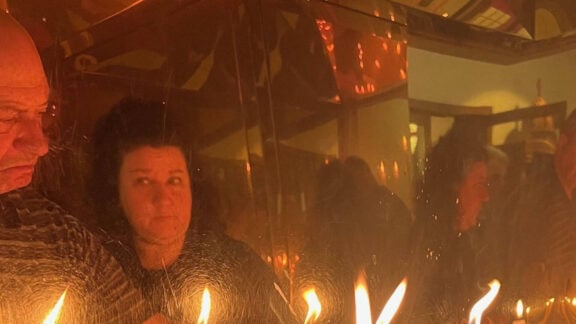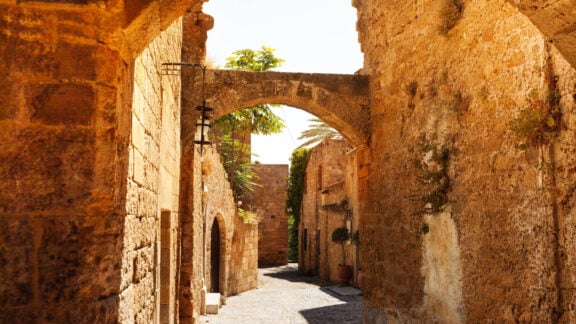The Shield of Arms below is that of HRH Prince Philip, the Duke of Edinburgh. The standard was granted in 1949 by royal assent. A version of the standard will probably appear draped over his coffin. There are several variations of the standard, but they all feature in the second panel, the first modern Greek flag. The shield represents his lineage as a Prince of Greece.

The question arises: why would he agree to feature the first modern Greek flag on his personal coat of arms if he shunned all things Greek? I can only conclude that Prince Philip never dismissed his Greek heritage, the country of his birth even though his childhood was chaotic and infused with tragedy.
It is unsupported in truth that Phillip maintained a deep dislike for the Greek people. It is true that he expressed a distaste for the Greeks (the perpetrators’ he said), that were complicit in the killing (assassination) of his Grandfather King George I of Greece in 1913 and those who condemned his father to near death. His father was only saved by agreeing to be permanently exiled from Greece and was left penniless.
He was the longest-serving consort of a British monarch. ‘Phillip the Greek’ as he was affectual known was very much the head of the family. It is widely accepted that he modernised the British institution. That to some extent is witnessed by the 1969 BBC fly-on-the-wall documentary, instigated by Philip. Behind the scenes, the documentary reveals that the Windsor’s were effectively a normal family regardless of being a very rich, so called British upper-class’ mob of people. They liked barbecues, watching television, and so on. They bickered with each other like the rest of us. The point is Phillip kept it together as Greeks do and he modernised the institution. Simply, he made them more accessible and accountable to the public.
READ MORE: Corfu fondly remembers late Prince Philip of Britain
The Greco-Turkish (1919–1922), war went badly for Greece, and the Turks made large gains. Philip’s uncle the high commander of the Greek expeditionary force, King Constantine I, was blamed for the defeat. He was forced to abdicate on 27 September 1922. The new military government arrested Prince Andrew, along with others. The commanding officer of the army, General Georgios Hatzianestis, and five senior politicians were arrested, tried, and executed in the Trial of the Six. Prince Andrew’s life was also believed to be in danger, and Princess Alice was under surveillance. Finally, in December, a revolutionary court banished Prince Andrew from Greece, for life.
The British naval vessel HMS Calypso evacuated Prince Andrew’s family, with Philip carried to safety in a cot made from a fruit box. Philip’s family went to France, where they settled in the Paris suburb of Saint-Cloud in a house lent to them by his wealthy aunt, Princess George of Greece, and Denmark.
Phillip was effectively stateless. He was a refugee and was raised with the support of English relatives. His mother was institutionalised. She suffered from schizophrenia and his Greek-born father took up with a mistress and died in 1944 in the south of France. Prince Andrew left to his only son seven-tenths of his estate, but he also left behind a debt of £17,500.
READ MORE: Prince Philip the Greek, the Duke of Edinburgh, dead aged 99
Princess Alice returned to Athens during the Second World War, sheltering Jewish refugees. She worked for the Red Cross, helped organise soup kitchens for the starving populace, and flew to Sweden to bring back medical supplies on the pretext of visiting her sister, Louise, who was married to the Crown Prince. She organised two shelters for orphaned and lost children, and a nursing circuit for poor neighbourhoods. After the war, she remained in Greece and founded a Greek Orthodox nursing order of nuns known as the Christian Sisterhood of Martha and Mary.
Prince Philip and his mother in 1960
Prince Phillip’s heritage and legacy is a significant story of survival and tenacity. Credit ought to be given to that regardless of what we may or may not feel about ‘Royalty’ and who is or is not ‘Greek’.








